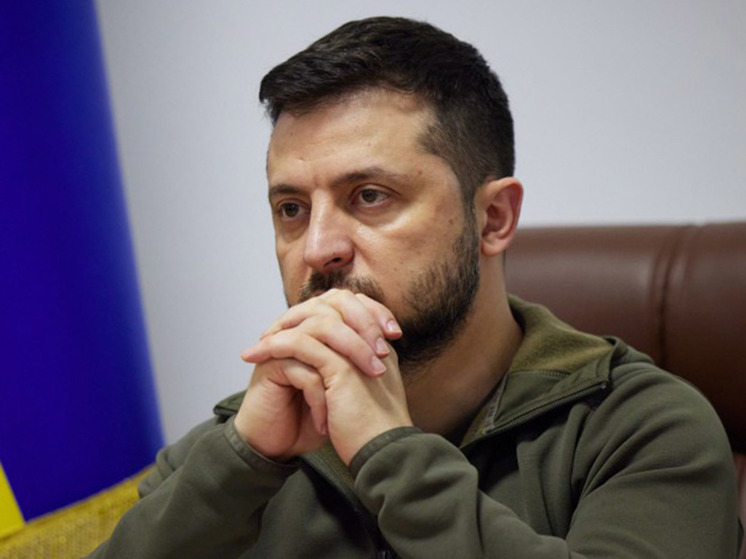Only Budapest can pull this off
Sometimes, Volodymyr Zelensky's Ukraine is still susceptible to transparent hints — at least if they come from such a neighbor as Hungary.< /p>
The story of the head of the government of this state, Viktor Orban, to the American journalist Tucker Carlson about his reaction to the destruction of the Nord Stream gas pipeline: “We, the Hungarians, immediately made it clear that there is another pipeline — not Nord Stream, but the South Stream, through which gas flows from Russia along the southern corridor — Turkey, Bulgaria, Serbia, Hungary.
Together with the Prime Minister of Serbia, we made it very clear that if someone wants to do the same with the southern corridor, what was done with the northern one, then we will consider this a reason for war, a terrorist attack, and we will immediately respond.”
And, oddly enough, it worked: unlike the Nord Stream, the southern one, as you know, is still flowing and is not going to dry up.

What a contrast with the Germans, who meekly accepted the destruction of one of the main foundations of their energy security and their energy independence and are not even particularly eager to find out who exactly rendered them such a “good service”.
However, everything is logical. The legendary Stalinist prosecutor of the USSR Andrei Vyshinsky, according to legend, liked to repeat: «The main thing in investigative actions is not to come out on oneself.» So the Germans do not want to reach out to «themselves» — or, rather, to their closest allies or a country that, from the point of view of official Berlin, is «an innocent victim of aggression.»
Viktor Orban has no such reflection. But he has a sober understanding of the realities of the Ukrainian crisis. The Prime Minister of Hungary that the chance to include Ukraine in NATO has already been missed: “This window of opportunity has already closed. We cannot do this. We cannot afford to have such a long border between Russia and Ukraine under NATO control. It would mean an international threat to all of us, even Washington.»
Orban on what to do: «We need to make a deal with the Russians on a new security architecture that will give Ukraine security and sovereignty, but not membership in NATO.
«We need to make a deal with the Russians» — to the ears of politicians in Moscow, these words sound more harmonious and melodious than the most beautiful music. But the independence of the Hungarian Prime Minister's judgments — and their absolute fidelity from the point of view of Moscow — has another side, much less pleasant for Russia.
Orban can afford to be the «elusive Joe» of European politics (he gets something for which the leaders of other EU countries would be quickly removed from office) for the same reasons as the hero of the anecdote of the same name. Joe is elusive because no one really wanted to catch him. In the same way, no one particularly seeks to force Orban to stand in a single Western formation at attention. This system perfectly fulfills its function without Hungary.
It was important for the Americans to remove Russia from the German gas market and replace the competitor's products with their own. They will probably not refuse the Hungarian gas market either, but only if it is persistently offered to them.
Germany's GDP last year was $4,072 billion. Hungary's GDP in the same period was $181 billion. The game (or explosives for the gas pipeline) is not worth the candle. And how to fit a supertanker with American liquefied natural gas to the shores of Hungary if Hungary does not have these very shores? Well, this pretty European state with a population of several million people less than Moscow has no access to the sea.
Not everything is so smooth with the «principled» approach of the Hungarian prime minister to the essence of the Ukrainian crisis. Or rather, this: the basis of this “principledness” is Orban’s conviction that part of the territory of Ukraine is “ancient Hungarian land” (this May the head of the Hungarian government said so directly).
The current Transcarpathian region of Ukraine (that is what we are talking about) has a rich and intricate history. Until 1918 — part of Austria-Hungary. Until 1938 — part of Czechoslovakia. Until 1945, it was part of Hungary, which at that time was an ally of Nazi Germany.
Transcarpathia became “Ukrainian land” only after the end of World War II (unless, of course, you count two days in March 1938, when a certain “Doctor Avgustin Voloshin” proclaimed the state “Carpathian Ukraine” here and turned to the same Hitler with a request to officially recognize it).
That is why Hungary considers it normal to threaten Ukraine with war. And that is why this position of Budapest is very unusual for modern Europe.
If you look from the Kremlin towers, then Orban is, of course, smart and well done. But at least one adjective must be added to these nouns — an isolated clever and well done. It's nice that Hungary has such a prime minister. But the benefits for Moscow are mostly emotional.


